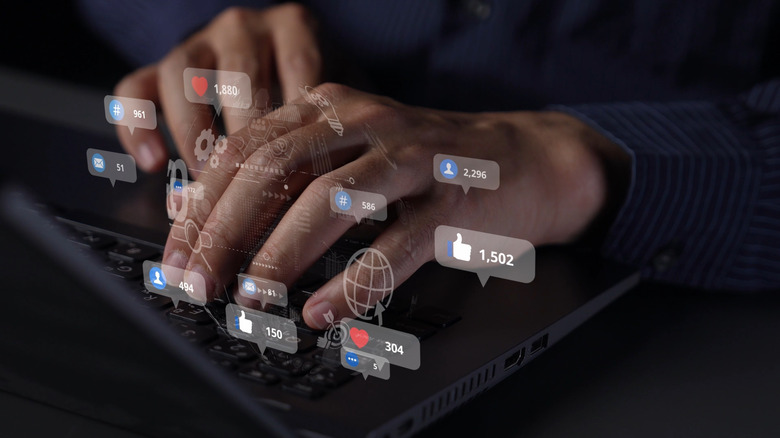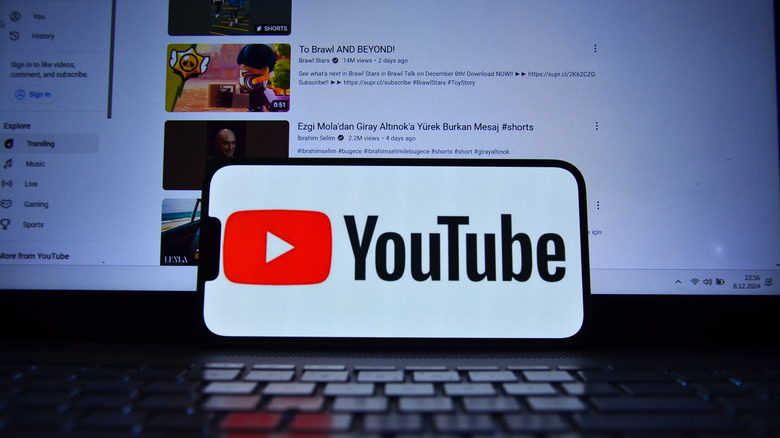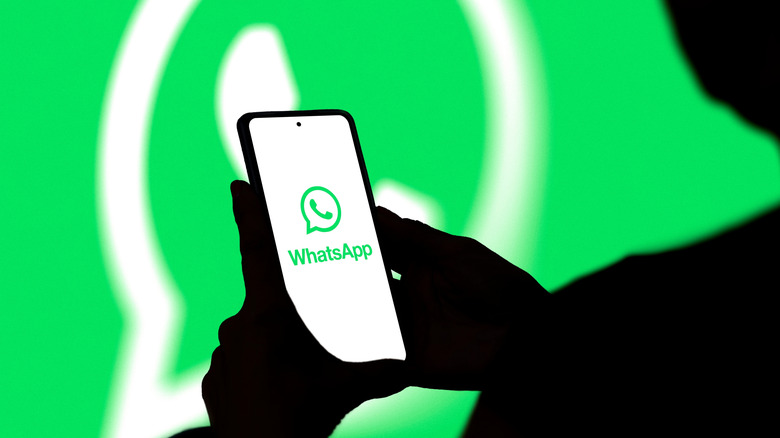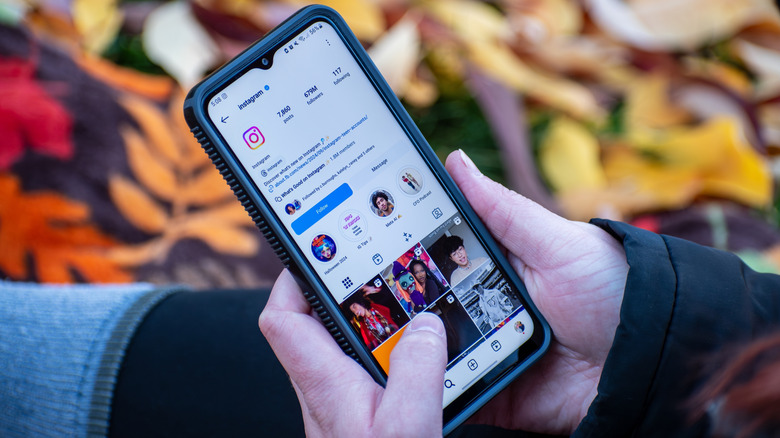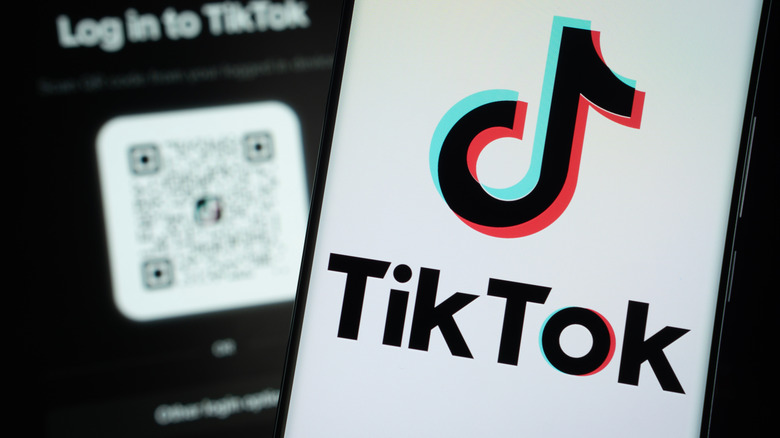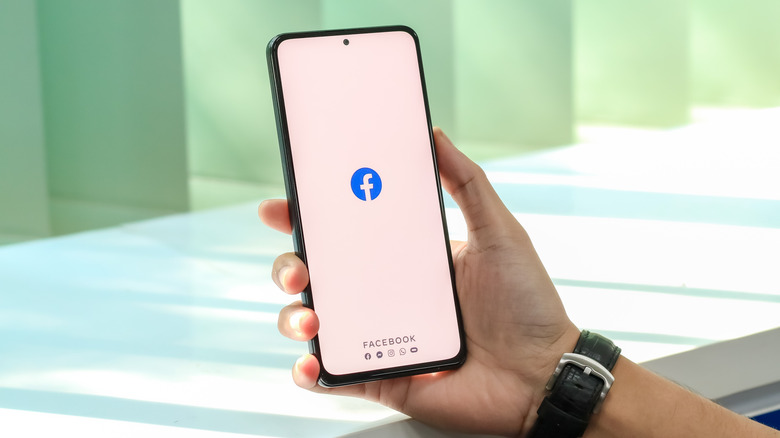The 5 Social Networks With The Most Active Users Today
If social media apps were a high-school cafeteria, these five platforms would be the ones hogging the biggest, coolest table. In the real-world, these networks have gone from humble dorm room dreams to global giants with billions of users glued to their screens. The platforms on this list have made the internet as we know it, breaking it and reshaping it over and over again. Nowadays, most sit under Meta's oversized umbrella, but each has carved its own lane. Billions of users, five wildly different personalities, and one thing in common — they've wormed their way into our daily routines, our conversations, and our lives.
All of these social networks began as something else entirely; They used to go by a different name and had wildly different visions, or were owned and operated by other businesses. Each of them has now at least two billion monthly active users, putting them a notch above every other social network out there. Before we continue, if you're one of these active users, it might be worth your while to read up on the most important things you should never share on social media.
YouTube
YouTube might be the website that made "content creator" into a real job title. It was never following trends because it was too busy inventing them, at least until YouTube shorts started taking on TikTok. YouTube's dream started in 2005, way before sub-60 second trends and Instagram aesthetics. Back then, there were no other significant video sharing platforms. Soon after, YouTube was acquired by Google for $1.65 billion in stock. It quickly became one of the most popular websites on the internet, populated mostly by common people who had something to say, who picked up their little camcorders and non-smart phones, and hit upload. Somehow, that was more than enough. Content creation did not begin there — blogs and even vlogs predate YouTube by quite a few years — but it's where an entire generation that now lives and breathes online storytelling first cut its teeth.
YouTube is one of the few popular social networks that sidelines DM's and direct communication. Meanwhile, as a content delivery platform, it's one of the few that is explicitly not just about entertainment. It plays a critical role in education and journalism, for one — "graduated from YouTube University" is a meme many resonate with. And of course, YouTube is incredibly popular, and incredibly lucrative. YouTube Shorts are viewed over 70 billion times every day, YouTube Premium offers an ad-free experience (for a price), and ad blockers are fought ever more fiercely. That said, there's a reason why this is still one of the most popular social media apps to try out.
What makes WhatsApp so special? On paper, it's just another platform to send off a text and talk to someone — something your mobile's been doing since it could fit in your pocket. Yet here it is, holding down a 3 billion monthly active users fort spread out over 180 countries. Why? It's hard to say, but its ease of use probably helped quite a bit. No ads, no fluff; just free, fast, end-to-end encrypted messaging sent through the internet. At least, that used to be the case until the summer of 2025, when WhatsApp confirmed that ads are now coming to the platform. What started as an "SMS, but better" app somehow ended up as the world's go-to communication line; It's hardly a surprise that WhatsApp is only getting ads now, when it's harder to jump ship for a robust alternative chat app.
Born in 2009, WhatsApp was the brainchild of Brian Acton and Jan Koum, two former Yahoo employees. Interestingly, it was first released as an iPhone only app, and it was paid — though the subscription was only $1 per year, with the first year being free. The app was soon bought by Facebook, and by 2016, it was free to use. The app is currently most popular in India, with Brazil a close second, but it's used more or less everywhere.
While it may be one of the world's leading social networks, WhatsApp hasn't escaped controversy. Somewhere along the way, the app became a key tool in extremist plots and the human smuggling trade. From coordinating routes to upselling VIP border crossings and facing government bans in China and Iran, it sparked global debate and has long been under the limelight.
Part gallery, part diary, part stage, and a cornerstone of the influencer era: This is the social network that Instagram has become today. Who knew a simple squared-photo app would reshape the world? Currently under the Meta umbrella, Instagram was originally a quirky location-based app named Burbn, before getting a glow-up from Stanford graduates Kevin Systorm and Mike Kreiger. It was first released to the public in 2010 and was downloaded by 25,000 users on its first day, foreshadowing future success.
While it seems all sparkle and glamour from the outside, Instagram has been berated for pushing unrealistic beauty standards and fueling eating disorders in particular, helping the spread of misinformation, and not being proactive enough to stop trolls. On the brighter side, Meta has rolled out several settings under Content Preferences, including an option called "limit political content from people you don't follow". While this might look like a rare benevolent move from the Meta corporation, the company has since admitted this development was necessary to avoid backlash for promoting political content. Either way, this toggle, along with some other Instagram features, can change how you use the social media app.
TikTok
Vine's spiritual successor and formerly a lip-syncing app named Musical.ly, TikTok is one of the five social networks with the most active users today. It's the newest app on our list, launching in 2016, and is notorious for its bite-sized and (generally) high-energy videos. If we had to pick one word that most describes TikTok, it would be Compelling — it has one of the highest social media engagement rate per post of any app, and 18% of all internet users are on TikTok. Whether that's a good thing or not, you'll have to decide for yourself.
Of course, it's not just the content that's kept TikTok in the spotlight for so long. The other reason it has gained so much attention is the fact that it's Chinese-owned, making this platform a political lightning rod. India, Pakistan, and Afghanistan have already imposed restrictions on the app in the past — though those were not always related to its ownership — and the U.S. government has been threatening a potential ban since the start of 2025. The ban ended up going into effect but was only enforced for a few weeks, when the app was allowed to return to mobile stores in a dramatic turn of events.
Controversy or not, today TikTok is popular with users as well as brands, with names like e.l.f. Cosmetics and the NBA behind some of the most successful marketing campaigns in the app's history.
Doesn't matter if the only "cloud" you know is full of clouds instead of files. You don't need to be the most technologically-minded person to have brushed shoulders with Facebook at some point in your life. Chances are, you either have an account, in use or gathering digital dust, or you used to have one before you decided you needed to delete your Facebook account. Maybe you spent your childhood or your teens playing Farmville on your Facebook account, or maybe that's how you reconnected with old school friends. Almost everyone of a certain age has some sort of tie to Facebook; It's practically a rite of passage.
An average of 3.07 billion monthly active users makes Facebook the crowning jewel of social networks today. What started as a modest college directory in a Harvard dorm room has now become Meta's golden child. Legend has it that Facebook rose from the ashes of a cheeky little prank site called Facemash — a controversial hot-or-not website that let students rank each other based on attractiveness. It's unclear if Facebook is really based on that old website, but the timeline is messy enough to make it hard to exclude the possibility. Either way, that's not the Facebook we know today. From fake accounts running rampant to awful default privacy settings, what makes Facebook terrible now is completely unrelated to its past.
